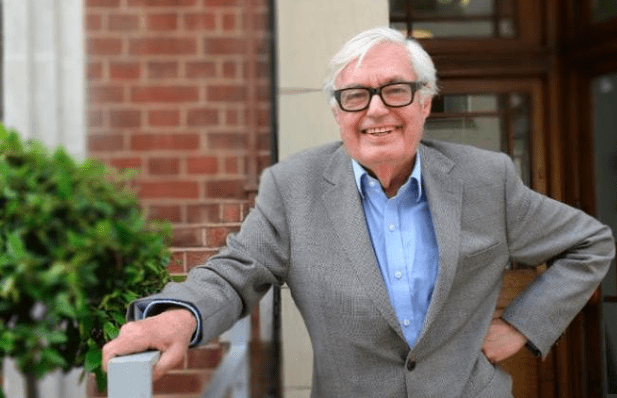On the wall behind my desk hangs a picture of Alexander Chancellor when he was editing The Spectator, with cigarette and telephone in one hand and looking very much the hero that all of us in the magazine have long regarded him. His death, announced earlier on this morning, is awful news: we have lost not just a columnist but the godfather of the magazine. Some editors improve their publications, others aren’t so lucky – but Alexander saved The Spectator. The magazine as we know it today – its tone, its mix, its success – is his.
Before he took over, sales were tanking. We were the only publication to support Brexit in the 1975 referendum (other than the Morning Star); an admirable position but one that had become something of an obsession. Circulation had more than halved and stood at just 12,000 – and then we stopped counting. The longest-running magazine in the English-speaking world was heading for oblivion.

In 1976 Henry Keswick had bought the magazine as part of his (then) political ambitions and hired Alexander, a childhood friend who had spent the last ten years as a foreign correspondent for Reuters. Alexander would protest that he wasn’t the right fit: ignorant of British politics and of literary London. As he put it later: “I had read the New Statesman a bit in my youth, but never The Spectator. I had never voted Conservative. Nobody but Henry could possibly have chosen me for the job.”
But then again, the Spectator didn’t have much to lose – so he gambled. He introduced a formula that has defined the magazine ever since: to assemble the best writers and, with a minimum of editorial interference, let them write what they want. He didn’t want it to be anti-Thatcher or too worried about Europe, or worried about any political line. He cared more about an ambience than political dogma. As he put it, The Spectator should be more of a cocktail party than a political party. That it should be, above all else, fun.
He set up the idea that the Spectator should not have a ‘line’ to take, that our allegiance should not be to any political outlook but to elegance of expression, independence of thought and originality of opinion. He asked Christopher Hitchens to report from Washington. “I didn’t hesitate”, the Hitch wrote later. “Never mind its ostensible Toryism. Alexander Chancellor’s Spectator had been outpacing my old stable at the New Statesman for some while, recruiting some of the latter’s best talents. It was a distinction even to be asked.” Publications’ reputations change very slowly, for good or for ill. But in remarkably quick time, Alexander had established The Spectator as Britain’s preeminent political and cultural journal. When he took over, the Statesman sold twice what The Spectator did. His reforms would reverse that ratio.
Low Life, High Life – much of what we see today was his. In 1980 he set up the literary competition, that continues to this day (Graham Greene once won, with a parody of his own work, under an assumed name). In 1981 he even dropped the leader page, saying that the magazine did not have a collective opinion about anything. And this at a time of incredible ideological strife – a time where Alexander Chancellor was breaking all the rules, and creating something extraordinary in the process. Something his successors have tweaked, but never changed fundamentally. His own notebook was one of the best things in the magazine, which is why I was thrilled to be able lure him back a few years ago to write Long Life column where he would write brilliantly about everything. His last one landed in my inbox four days ago. It’s said that in journalism, you get to meet your heroes. At The Spectator, you get to work with them.
When I first became editor, in 2009, we had lunch and I asked him him for tips. He said that he had none, that he didn’t do much, that he entered the job knowing nothing about print journalism, that all he did was got out of the way and let the writers do the work. As he once wrote, “The magazine edits itself. It is the writers who collectively give The Spectator its identity without much assistance from the editor”. But if this were the whole story, then The Spectator would not have been close to collapse before Alexander arrived and would be on an ascent to all-time sales high afterwards.
The magazine exists, today, because of him. Those of us who work The Spectator’s offices are there because of him. What readers know as the Spectator magic was created by him. It’s hard to overstate how much we owe him.







Comments